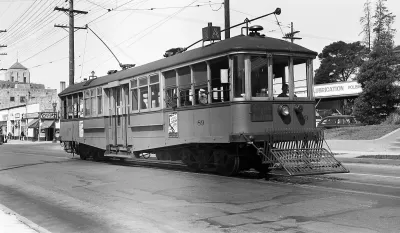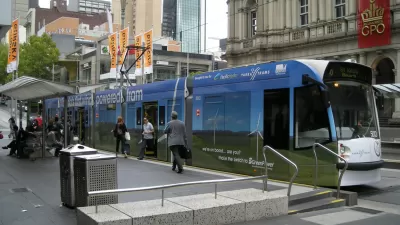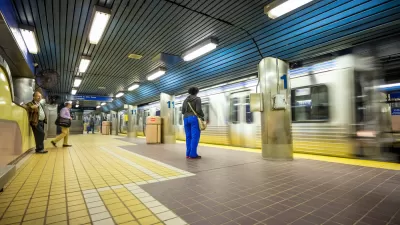The Union of Concerned Scientists takes us on a “trip down memory ‘train,’” examining the history of public transit, including its chronic disinvestment and perpetuation of racism, from the 1800s to today.

The Union of Concerned Scientists (UCS) recently published a brief, informative history of public transit in the U.S. that examines how, despite the fact that being able to get from place to place is “the foundation for a thriving community and sets the stage for growing our economy and upward mobility,” our current transportation system falls short and leaves many of us disconnected. Despite the success of privately run streetcar systems in the 1800s and early 1900s, “city, state, and federal politicians, along with private sector interests made intentional decisions that locked in car-dependent infrastructure,” writes Kevin X. Shen, Northeast transportation policy analyst and advocate with the UCS. Despite the federal government passing the Urban Mass Transportation Act of 1964, transit has been historically underfunded.
Shen’s article outlines the racist underpinnings of both early transit and how the prioritizing of car infrastructure and construction of the interstate highway system perpetuated racial inequality and injustices, as well as the decades of ongoing debate in Congress over whether the federal government should be funding local transit at all rather than focusing on highways. He concludes with a summary of where this history has gotten us — “With decades of low commitment to transit and instead investing in car dependence, transportation is now the largest sector of US greenhouse gas emissions, is the second largest household expenditure, and remains a key factor perpetuating inequities in our country” — and looks to what our next chapter could hold.
FULL STORY: A Trip Down Memory “Train”: A Brief History of Public Transit

Maui's Vacation Rental Debate Turns Ugly
Verbal attacks, misinformation campaigns and fistfights plague a high-stakes debate to convert thousands of vacation rentals into long-term housing.

Planetizen Federal Action Tracker
A weekly monitor of how Trump’s orders and actions are impacting planners and planning in America.

San Francisco Suspends Traffic Calming Amidst Record Deaths
Citing “a challenging fiscal landscape,” the city will cease the program on the heels of 42 traffic deaths, including 24 pedestrians.

Defunct Pittsburgh Power Plant to Become Residential Tower
A decommissioned steam heat plant will be redeveloped into almost 100 affordable housing units.

Trump Prompts Restructuring of Transportation Research Board in “Unprecedented Overreach”
The TRB has eliminated more than half of its committees including those focused on climate, equity, and cities.

Amtrak Rolls Out New Orleans to Alabama “Mardi Gras” Train
The new service will operate morning and evening departures between Mobile and New Orleans.
Urban Design for Planners 1: Software Tools
This six-course series explores essential urban design concepts using open source software and equips planners with the tools they need to participate fully in the urban design process.
Planning for Universal Design
Learn the tools for implementing Universal Design in planning regulations.
Heyer Gruel & Associates PA
JM Goldson LLC
Custer County Colorado
City of Camden Redevelopment Agency
City of Astoria
Transportation Research & Education Center (TREC) at Portland State University
Jefferson Parish Government
Camden Redevelopment Agency
City of Claremont





























